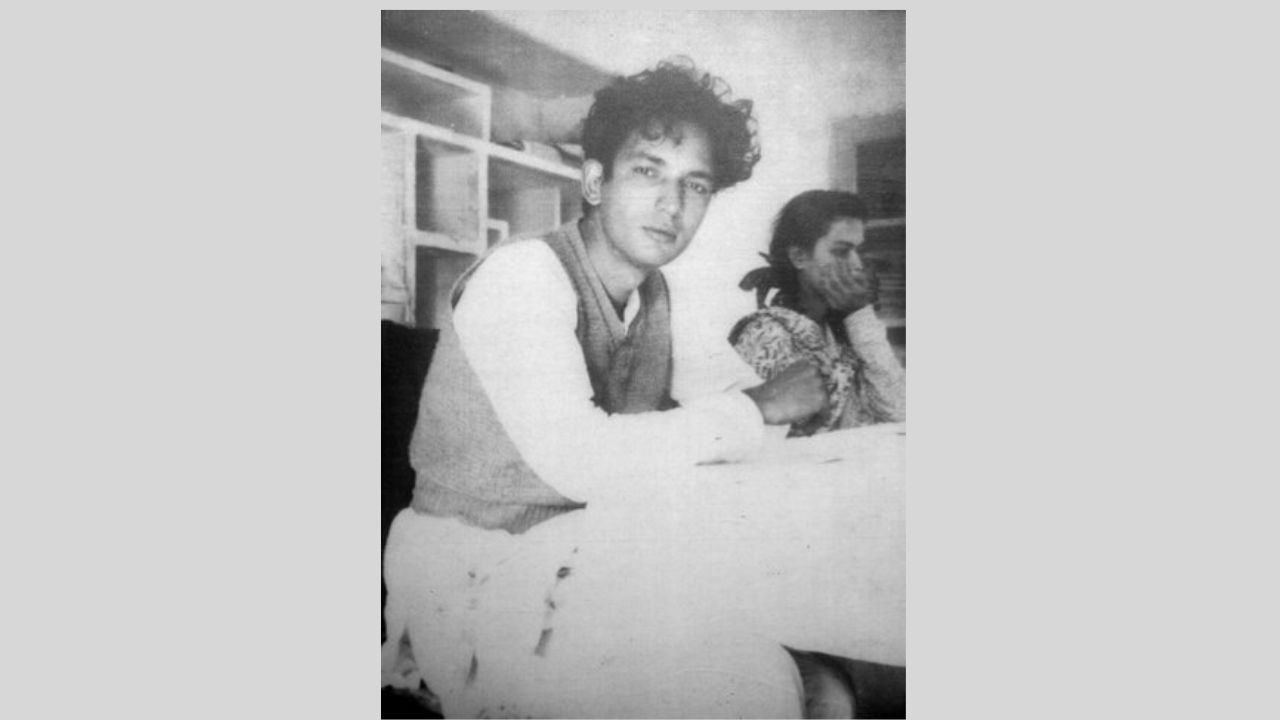Kaifi Azmi Biography: Born as Akhtar Hussain Rizvi in a small hamlet in Uttar Pradesh to a family of landlords, Kaifi Azmi was India’s most renowned Urdu poet. In addition to being a landlord, Syed Fateh Hussain Rizvi laboured as a Tehsildar in a small state in Uttar Pradesh.
Kaifi Azmi Biography
Early Years
Kaifi Azmi’s actual name was Syed Athar Hussain Rizvi, and he was born on 14 January 1919 in Mijwan, Azamgarh, Uttar Pradesh, to a zamindar family.
At the age of 11, he composed his first ghazal, “Itna to Zindagi main Kisi ki khalal pade,” which was subsequently performed by the renowned singer Begum Akhtar.
Career
Due to the Quit India movement, Azmi abandoned his Persian and Urdu studies in 1942 and later joined the Communist Party of India. He then travelled to Bombay to collaborate with Ali Sardar Jafri on the Qaumi Jung paper.
And at the time of his marriage to Shaukat Kaifi, he was a “full-time” card-carrying member of the group, residing in a Mumbai-based cooperative. Kaifi, a member of the Progressive Writers Movement, worked closely with the labour union movement, and his concern for the disadvantaged is well-represented in his poetry.
In February 1973, when Kaifi Azmi was in his mid-50s, he suffered a paralytic stroke that rendered his left hand and limb permanently incapacitated. In fact, he continued to compose even as he struggled with the disability that was imposed upon him.
Even at this late juncture, he decided to devote his efforts to the improvement of his birthplace, Mijwan. This remained his primary focus until he passed away. In recognition of his dedication to the region, the Indian government named the train that ran between Delhi and Azamgarh the “Kaifiyat Express.”
However, he did not limit himself to writing alone; he was a constant catalyst for change among the disenfranchised.
His poems reflect his small-town origins, his commitment to socialism, his extensive body of work, and the enormous changes he brought to the town where he was born. The profundity and metaphorical lyricism of Kaifi’s words can immediately strike one with awe.
In spite of the political and economic changes in India, he remained idealistic about India’s socialist destiny until his death. This optimism was reflected in his verses, which were brimming with aspirations for a socialist, democratic society in which the voice of a fellow citizen will be heard as melodic melody.
Personal Life
Kaifi Azmi was a student who played a significant role in establishing a Student’s Union and encouraging students to engage in strikes to get their demands met. The University of Allahabad awarded him numerous degrees in numerous languages, and he passed numerous exams. He began to ascend the poetry ladder and gained fame and recognition rapidly. His introduction to poetry has an intriguing backstory. Once, he was summoned to a Mushaira (a poetry recital event) and recited a couplet that was well received by everyone present.
During the Quit India movement for independence, he also joined the communist party and laboured in the textile mills of Kanpur. He met an attractive woman named Shaukat, and he and she quickly fell in love and wed. Kaifi moved on to become a renowned theatre actor who also appeared in Hindi films.
Sergey Brin Biography: Age, Birthday, Early Life, Career, Assets, Personal Life, Net Worth
Death
Kaifi Azmi passed away in Mumbai on May 10, 2002, fifteen months after he recorded for the Library of Congress in New Delhi.
At the time of his death, he was one of the last delegates of the Progressive Writers Association, a writers’ organisation that had unparalleled influence during India’s independence struggle.
Awards and Accolades
Numerous distinctions, including the Soviet Land Nehru Award and the Sahitya Akademi Award, were bestowed upon Kaifi Azmi. In 2000, he was awarded the premier Millennium Award by the Delhi Government and Urdu Academy. He was also conferred the Padma Shri, one of the highest civilian honours bestowed by the Indian government. In 1998, the government of Maharashtra presented him with the Dnyaneshwar award.




